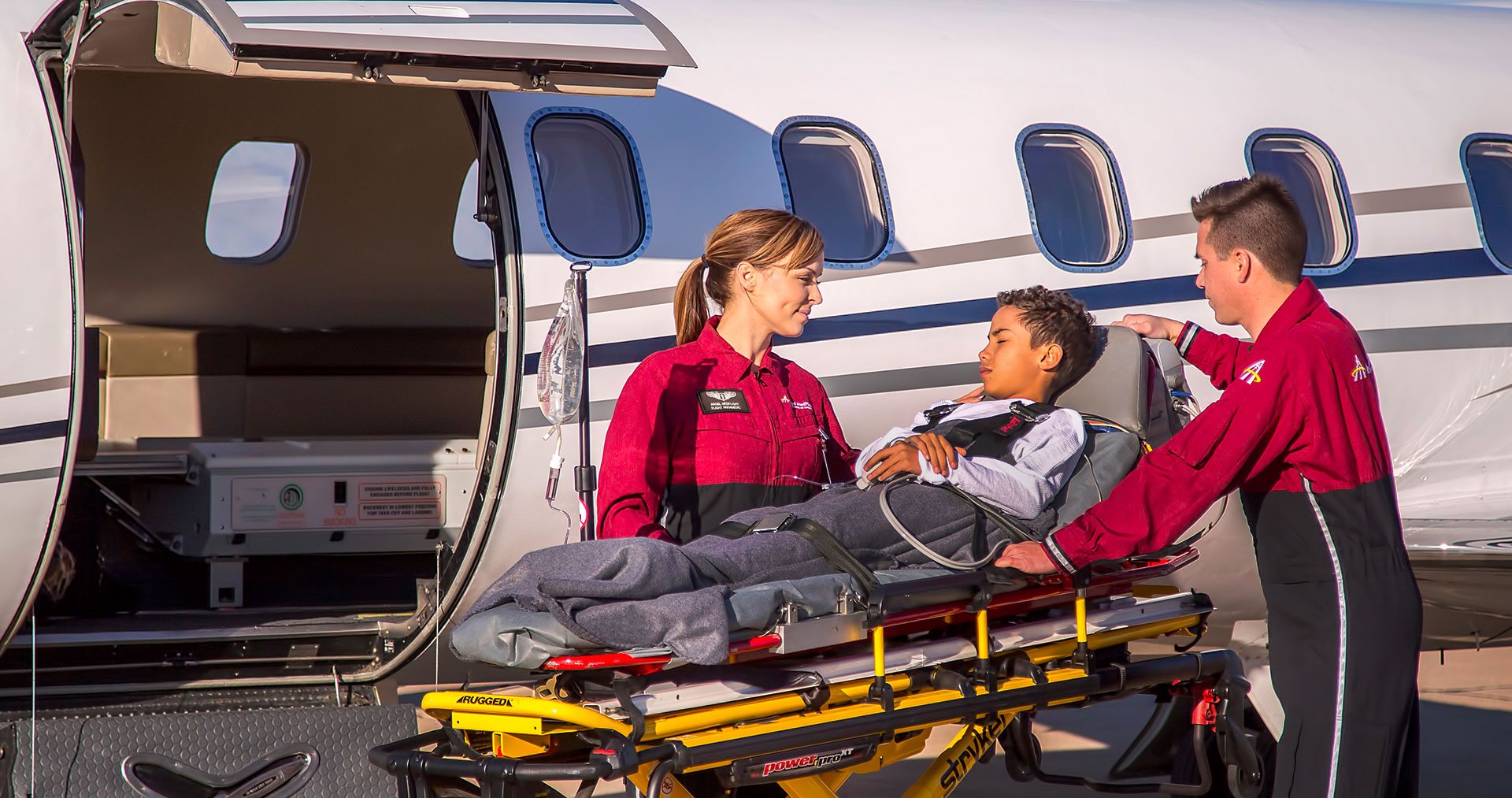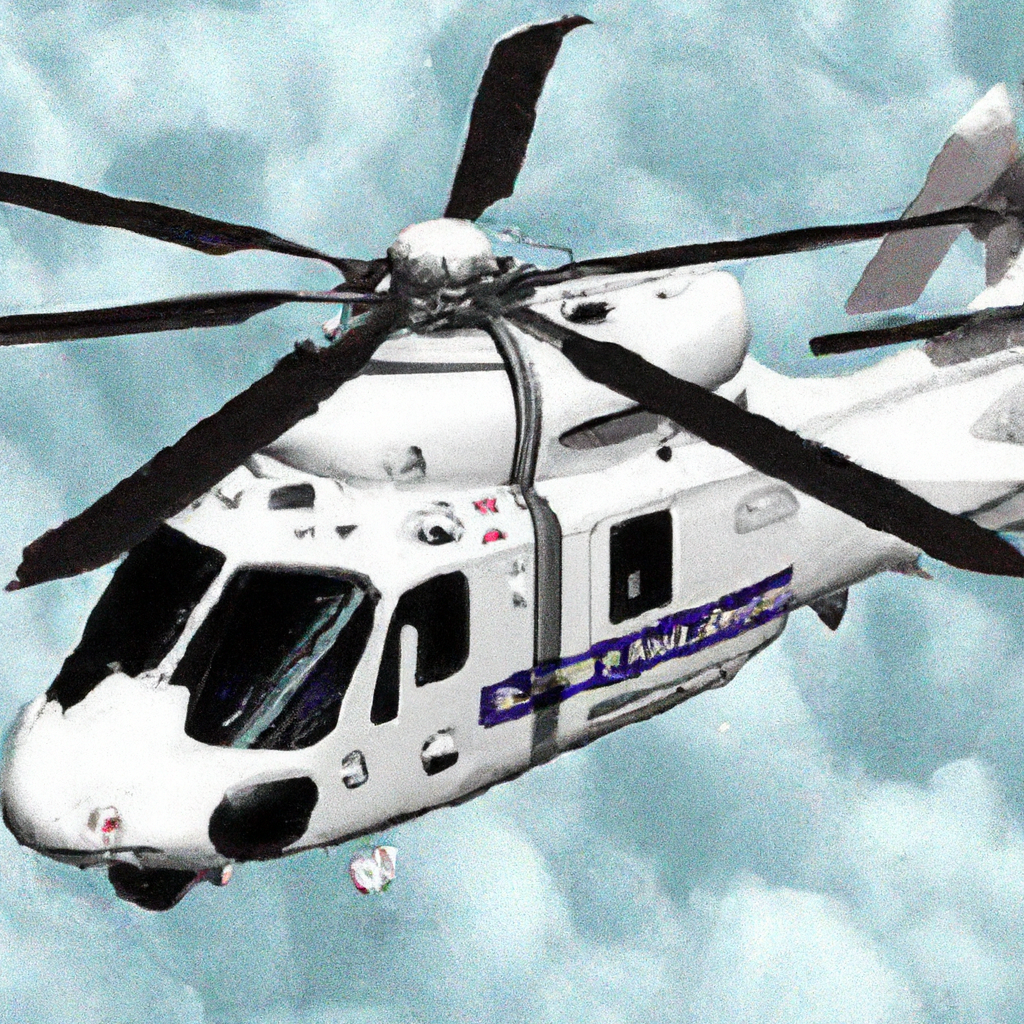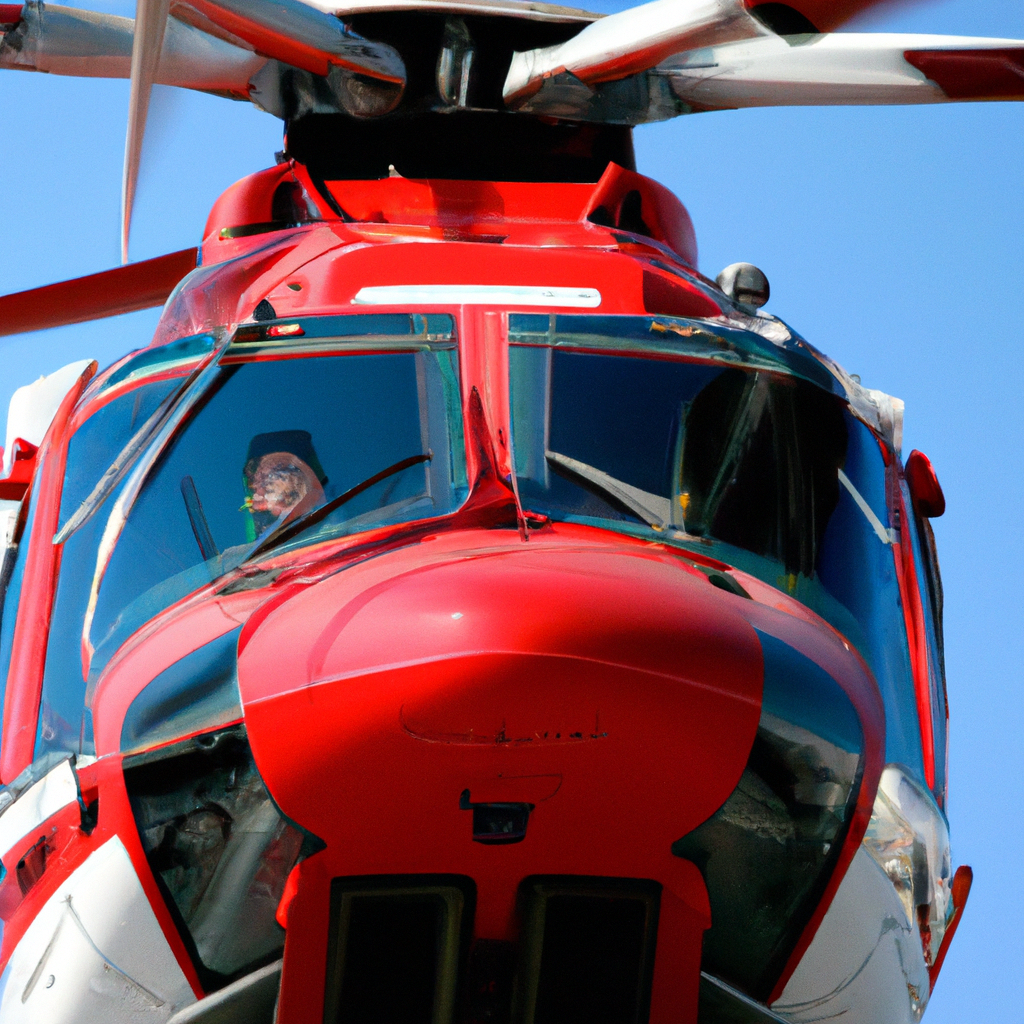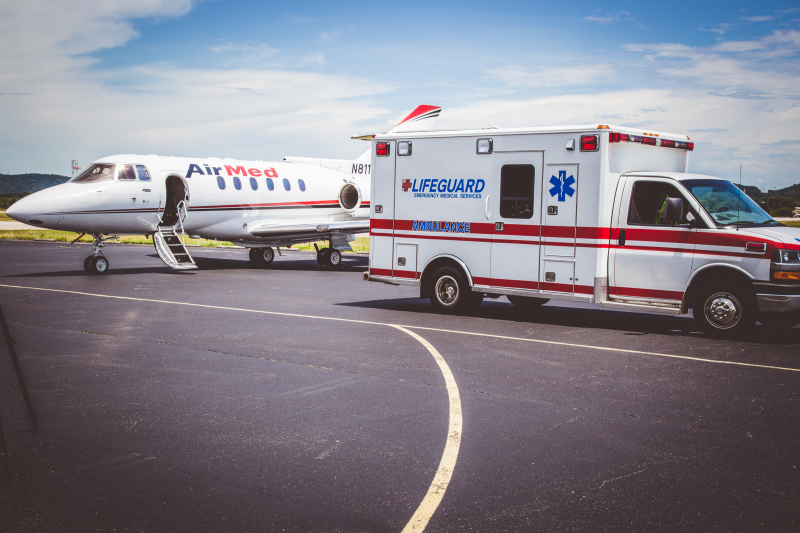So you’ve always had a passion for helping others and you’re interested in pursuing a career in the medical field. But have you ever considered the diverse opportunities available in the world of air ambulance services? From pilots and paramedics to medical coordinators and emergency physicians, the field of air ambulance services offers a range of career paths for individuals with different skill sets. In this article, we’ll explore the various roles within air ambulance services and shed light on the multitude of opportunities awaiting those interested in this exciting and rewarding industry. So buckle up, because we’re about to take off on an exploration of career paths in air ambulance services!
Pilots
Pilots play a crucial role in air ambulance services, as they are responsible for safely transporting patients to and from medical facilities. They require specific licenses and training to ensure they are well-equipped to handle the unique challenges of this field.
License Requirements
To become a pilot in air ambulance services, you must hold a commercial pilot license (CPL) issued by the Federal Aviation Administration (FAA) in the United States. This license requires a minimum of 250 flight hours, including 100 hours as pilot-in-command and 50 hours of cross-country flying. Additionally, pilots must pass a written and practical examination.
Skills and Training
In addition to obtaining a CPL, pilots in air ambulance services must also possess excellent navigation, communication, and decision-making skills. They should be able to work well under pressure and quickly adapt to changing conditions. Specialized training, such as instrument rating and night flying, is also necessary to ensure safe and efficient operations.
Career Progression
As a pilot in air ambulance services, there are various opportunities for career advancement. Pilots can work their way up to become chief pilots or supervisory positions within the organization. Additionally, pilots may choose to specialize in specific areas, such as rotor-wing or fixed-wing operations, depending on their interests and skill sets. Continuous professional development and staying up-to-date with industry advancements are crucial for career growth in this field.
Flight Nurses
Flight nurses play a critical role in providing medical care to patients during air ambulance transportation. They possess the necessary qualifications and training to ensure the well-being of patients throughout the journey.
Qualifications and Education
To become a flight nurse, you must first become a registered nurse (RN). This typically requires a Bachelor of Science in Nursing (BSN) degree, although some programs may accept an associate degree in nursing (ADN). After completing the academic requirements, aspiring flight nurses must also pass the National Council Licensure Examination for Registered Nurses (NCLEX-RN) to become licensed.
Specialized Training
In addition to their nursing qualifications, flight nurses undergo specialized training specific to air ambulance services. This includes certifications in advanced cardiac life support (ACLS), pediatric advanced life support (PALS), and neonatal resuscitation program (NRP), among others. They also receive training in aviation safety, survival skills, and procedures for managing medical emergencies during flight.
Responsibilities
The primary responsibility of flight nurses is to provide high-quality medical care to patients during air transportation. They must be skilled in assessing and stabilizing patients in often challenging and fast-paced environments. Flight nurses administer medications, monitor vital signs, and provide advanced life support interventions when necessary. They work closely with other members of the air ambulance team to ensure the best possible outcomes for patients.

Paramedics
Paramedics are vital members of the air ambulance team, providing immediate medical care and support to patients in critical situations. They undergo extensive training and possess the skills necessary to handle emergency medical situations.
Education and Certification
Becoming a paramedic typically requires completing a diploma or degree program in paramedicine. These programs provide in-depth education in anatomy, physiology, pharmacology, and emergency medical procedures. After completing the program, paramedics must pass a certification exam administered by the National Registry of Emergency Medical Technicians (NREMT) or a similar certifying body.
Skills and Training
Paramedics in air ambulance services must be skilled in assessing and treating a wide range of medical emergencies. They are trained in advanced life support techniques, including intubation, defibrillation, and administration of intravenous medications. Additionally, paramedics receive specialized training in aviation safety procedures and protocols specific to air ambulances.
Roles and Responsibilities
Paramedics play a crucial role in providing immediate medical care to patients. They assess the patient’s condition, provide necessary interventions to stabilize them, and continuously monitor their vital signs during transportation. Paramedics also coordinate with other healthcare professionals to ensure seamless care and communication throughout the entire air ambulance journey.
Dispatchers
Dispatchers are an integral part of the air ambulance team, responsible for coordinating and managing flight operations. They are the main point of contact for various stakeholders, ensuring efficient and safe transportation of patients.
Communications Skills
Effective communication is essential for dispatchers in air ambulance services. They must be able to relay information accurately and efficiently to pilots, medical professionals, and ground staff. Dispatchers also need strong interpersonal skills to handle stressful situations and effectively communicate with patients’ families.
Knowledge of Aviation and Medical Terminology
Dispatchers must possess a thorough understanding of aviation and medical terminology to effectively coordinate flight operations. They must interpret and relay complex information regarding weather conditions, flight routes, and medical requirements to ensure the safety of the patients and crew.
Stress Management
Dispatchers in air ambulance services often work in high-pressure environments, handling multiple tasks and managing unforeseen challenges. It is essential for dispatchers to possess strong stress management skills to remain calm and focused in stressful situations. They must be able to adapt quickly to changing circumstances and make critical decisions to ensure the well-being of patients.

Mechanics and Maintenance Crew
The mechanics and maintenance crew in air ambulance services are responsible for ensuring the airworthiness and reliability of the aircraft. Their expertise plays a vital role in maintaining the safety of both patients and crew members.
Aircraft Maintenance Certifications
Mechanics in air ambulance services must hold appropriate certifications, such as an Airframe and Powerplant (A&P) license issued by the FAA. This license demonstrates their expertise in maintaining and repairing aircraft systems, including engines, electrical systems, and avionics. Ongoing training and education are necessary to stay up-to-date with the latest technologies and regulatory requirements.
Skills and Experience
The mechanics and maintenance crew require a strong technical background and experience in aircraft maintenance. They must possess excellent troubleshooting skills to identify and rectify any mechanical issues promptly. Knowledge of aviation regulations and safety procedures is crucial to ensure compliance and maintain the highest standards of safety.
Safety Regulations
Mechanics and maintenance crew in air ambulance services play a pivotal role in adhering to safety regulations. They follow strict protocols for routine inspections, preventive maintenance, and documentation to ensure the airworthiness of the aircraft. Their meticulous attention to detail and commitment to safety greatly contribute to the overall reliability and performance of the air ambulance fleet.
Aviation Managers
Aviation managers oversee the operations and administration of air ambulance services. They play a vital role in ensuring the smooth functioning of the organization and maintaining the highest standards of safety and efficiency.
Leadership and Management Skills
Aviation managers must possess strong leadership and management skills to effectively lead the air ambulance team. They provide guidance, support, and direction to the entire staff, ensuring everyone understands their roles and responsibilities. Effective communication, decision-making, and problem-solving skills are crucial for successful aviation management.
Risk Assessment and Safety Procedures
Aviation managers are responsible for assessing and mitigating potential risks in air ambulance operations. They develop and implement safety programs, protocols, and procedures to ensure the well-being of patients, crew members, and the community. Staying informed about industry best practices and regulatory changes is essential to maintain a safe and compliant operation.
Budgeting and Resource Allocation
Aviation managers must have strong financial management skills to effectively allocate resources and develop budgets for air ambulance services. They ensure optimal utilization of funds, prioritize investments in equipment and training, and maintain a sound financial structure. Efficient resource allocation plays a crucial role in maintaining the viability and sustainability of the organization.
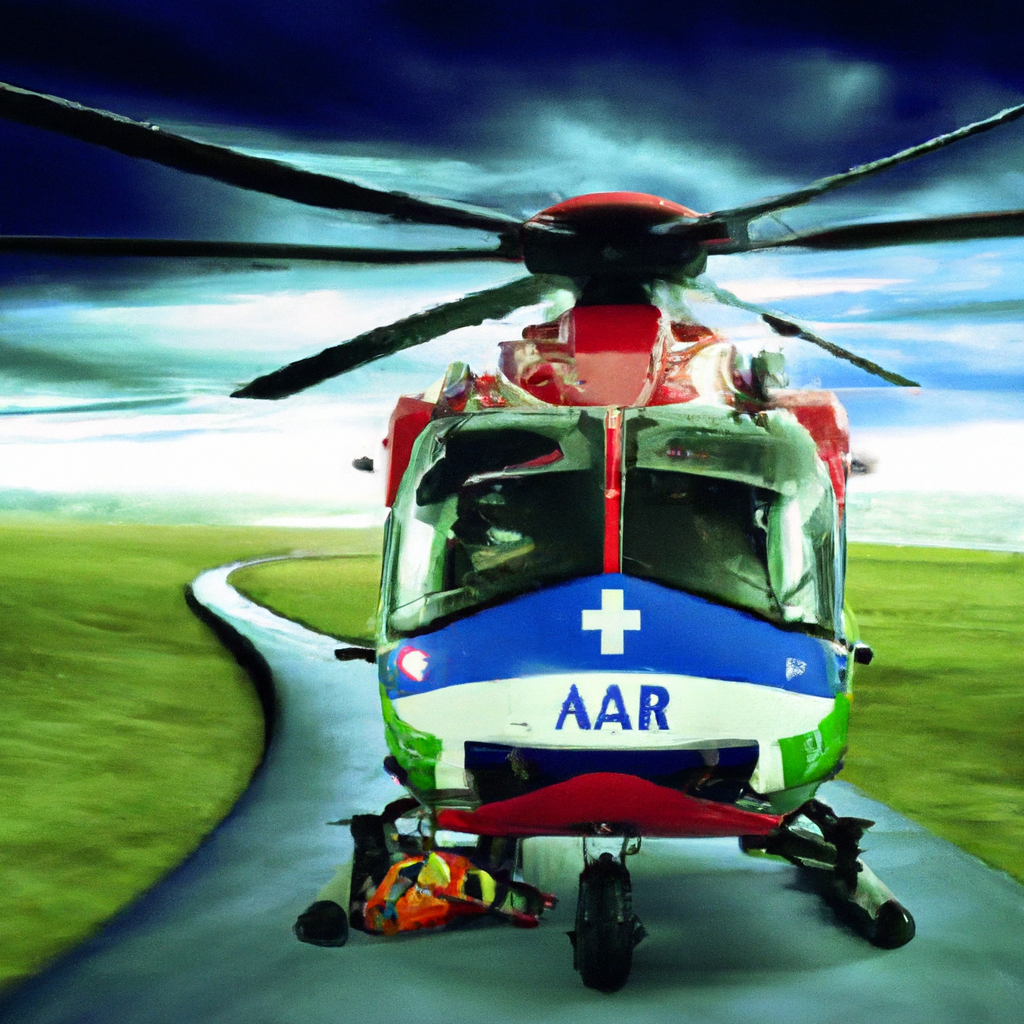
Administrative Staff
Administrative staff members provide essential support to air ambulance services, ensuring smooth operations and efficient coordination. They play a crucial role in organizing and managing administrative tasks in a fast-paced environment.
Organizational Skills
Administrative staff must possess excellent organizational skills to manage multiple tasks simultaneously. They handle scheduling, documentation, and coordination of various administrative activities, ensuring effective communication and efficient utilization of resources.
Record-Keeping and Documentation
Accurate record-keeping is crucial in air ambulance services to maintain compliance with regulatory requirements and facilitate seamless patient care. Administrative staff members are responsible for maintaining and organizing patient records, flight logs, and other documentation. They must ensure confidentiality and accuracy in the handling of sensitive medical information.
Teamwork and Communication
Effective teamwork and communication are essential for administrative staff members. They collaborate with various stakeholders, including pilots, medical professionals, and insurance providers, to ensure smooth operations. Clear and timely communication is crucial to coordinate flight logistics, patient transfers, and insurance and billing processes efficiently.
Medical Directors
Medical directors play a critical role in air ambulance services, providing medical oversight, protocol development, and staff training. They ensure the highest standards of patient care and safety throughout the entire air ambulance journey.
Medical Education and Credentials
Medical directors in air ambulance services typically hold medical degrees, such as Doctor of Medicine (MD) or Doctor of Osteopathic Medicine (DO). They are licensed physicians with specialized training and expertise in emergency medicine, critical care, or related fields.
Clinical Oversight and Protocol Development
Medical directors are responsible for developing and implementing medical protocols and guidelines for air ambulance operations. They ensure that the clinical care provided during air transportation aligns with evidence-based practices and meets the unique needs of patients in critical conditions. Medical directors also provide ongoing clinical oversight, quality assurance, and performance improvement initiatives to maintain the highest level of patient care.
Medical Staff Training
Medical directors play a crucial role in training and educating the medical staff involved in air ambulance services. They provide specialized training in emergency medicine, critical care interventions, and aviation-related medical procedures. Continuous professional development and staying abreast of advancements in medical technology and research are vital for medical directors to ensure the best possible outcomes for patients.
Communications Specialists
Communications specialists play an integral role in air ambulance services, ensuring effective communication and coordination between various stakeholders involved in the transportation of patients.
Radio Communication Skills
Communications specialists must possess excellent radio communication skills to effectively relay information between pilots, medical professionals, and ground staff. They must be able to communicate clearly and concisely, ensuring accurate understanding and timely response to critical situations.
Emergency Dispatch Procedures
In emergency situations, communications specialists must follow established dispatch procedures to initiate swift response and transportation of patients. They coordinate with medical professionals, dispatch aircraft, and provide accurate instructions to ensure the seamless transfer of patients from the scene of the emergency to appropriate medical facilities.
Multitasking and Stress Management
Communications specialists in air ambulance services often handle multiple tasks simultaneously and work in high-pressure environments. They must possess strong multitasking and stress management skills to effectively prioritize and coordinate various communication channels. The ability to remain calm under pressure and make critical decisions quickly is essential for communications specialists.
Insurance and Billing Experts
Insurance and billing experts play a crucial role in air ambulance services, ensuring proper reimbursement and compliance with insurance and regulatory standards.
Knowledge of Health Insurance Systems
Insurance and billing experts must possess a thorough understanding of health insurance systems and regulations. They navigate complex insurance processes, including verification of coverage, pre-authorization requirements, and claims submission. Staying updated with insurance industry changes is crucial to ensure accurate billing and reimbursement.
Billing and Coding Procedures
Accuracy in billing and coding processes is paramount for insurance and billing experts. They assign appropriate codes to medical procedures and services, ensuring compliance with billing regulations and maximizing reimbursement. Understanding coding systems, such as the International Classification of Diseases (ICD) and Current Procedural Terminology (CPT), is essential for precise billing.
Compliance and Regulatory Standards
Insurance and billing experts in air ambulance services must adhere to regulatory standards and compliance requirements. They ensure that billing practices align with federal and state regulations, as well as insurance industry guidelines. Compliance with privacy and security regulations is crucial to protect the confidentiality of patient information and maintain trust with insurance providers.
